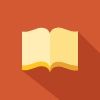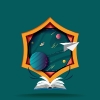James Joyce: The author
James Joyce is the most famous Irish writer. With works such as Ulysses and Finnegans Wake, he was the leading figure of Modernist Avant-Garde circles of the early 20th century. Go on an Odyssey through the western literary canon and explore Dublin as it was a century ago with James Joyce with Speechify Audiobooks.
Who is James Joyce, and what is he famous for?
James Augustine Aloysius Joyce was an Irish literary figure of the Modernist era. An erudite in philosophy and literature, as well as a polyglot, Joyce is famous for his innovative, dense narratives that reshaped our understanding of the novel.
Joyce’s literary career started in 1907 when he published his first poetry collection titled Chamber Music. Presaging Joyce’s later works, the collection was a mix of bawdy humor and delicate expressions of love, but it did not garner much readership.
Joyce’s rise to fame began with the publication of his short story collection, Dubliners. The collection was a naturalistic take on the Dublin middle class and an exploration of Irish national identity. In Dubliners, Joyce demonstrated for the first time his obsession with epiphany, a moment of realization and clear insight that reshaped one’s worldview forever, which was how he came to dislike the stagnate Irish nationalism.
His subsequent works, A Portrait of the Artist as a Young Man and Ulysses, especially the latter, would cement Joyce’s position as the leading Modernist figure in Anglophone literature. Highly innovative, experimental, erudite, and full to the brim with literary illusions, the two novels have a reputation for being impenetrable and obscure. However, Joyce’s beautifully flowing prose, humor, and keen sense of rhythm and music of the English language attract generations of new readers to this day.
Critical moments in James Joyce’s upbringing
James Joyce was born on February 2, 1882, in Dublin to John Stanislaus Joyce and Mary Jane Murray and was the eldest of ten siblings of the middle-class family.
Joyce’s academic career began in 1888 when he started attending Clongowes Wood College, a Jesuit school in County Kildare. His father’s unpaid debts and ever-growing financial crisis, however, spelled an end to his boarding school days in 1991 when he moved to and briefly attended the Christian Brothers O’Connell School.
Eventually, John Conmee, a Jesuit priest and a friend of his father’s, arranged for the young James to attend Belvedere College for free. He spent five years at Belvedere, where he first showed signs of blooming literary talent.
In 1898, Joyce enrolled at University College, Dublin, where he studied English, French, and Italian. His subsequent years at the university would influence his thought forever, as he was exposed to the writings of some of his literary idols, such as Henrik Ibsen.
During his adolescent years, Joyce struggled with the religious and political climate in Ireland, which was at the time busied with the issues of Home Rule and plagued by hatred of the British. Joyce’s ultimate rebellion and distancing from his countrymen would culminate in the moment of his mother’s death when he denied her final wish for him to confess and take communion.
Instead, he boldly stated, “Non serviam.” — “I will not serve.” — and departed forever, eventually settling in Paris, where he became familiar with the growing community of Modernist poets, novelists, and artists, such as Ezra Pound, Ernest Hemingway, W. B. Yeats, and T. S. Eliot.
Joyce spent much of his adult life from 1904 until World War I broke out in 1914 in an Italian port city called Trieste. During this time, Joyce wrote some of his most famous works, including Ulysses. Zurich then became his home after the war, and Joyce lived there until his death in 1941. During his time in Zurich, Joyce wrote many of his short stories and poems and also worked on his final novel, Finnegans Wake.
Joyce’s most notable books
Joyce wrote poetry and prose, and he occasionally tried his pen at playwriting and journalism, but he remains known for his novels.
Ulysses
Published in 1922 on Joyce’s 40th birthday by Sylvia Beach of Shakespeare and Company, a bookshop and literary center in Paris, Ulysses is James Joyce’s second novel.
The landmark and somewhat of a demonstration of the whole philosophy of the Modernist movement, Ulysses centers on a single day in Dublin, namely June 16, 1904, the day Joyce first met his beloved Nora Barnacle.
The title is an allusion to Homer’s Odyssey, and in many ways, the novel is a modern Odyssey. Instead of the age of heroes, we have a simple summer day in Ireland, and instead of the mighty king Odysseus, we follow the wanderings of Leopold Bloom, a simple yet big-hearted man with a cheating wife, the faithless modern Penelope Molly Bloom, to whom he, unlike his Greek counterpart, does not wish to return.
In his wanderings through the city, Bloom eventually meets Stephen Dedalus, Joyce’s literary ego and a Telemachus of the story. Stephen wanders, too, busying himself with literary and philosophical ideas and reminiscing about his family, unaware that he might run into a metaphorical father in the character of Bloom.
A Portrait of the Artist as a Young Man
Set a few months before the events of Ulysses, A Portrait of the Artist as a Young Man is Joyce’s first novel, a Künstlerroman that offers readers a taste of what Joyce’s stream of consciousness techniques that he perfected in Ulysses.
The novel began as Stephen Hero, an autobiographical novel Joyce abandoned in 1907. Turning his attention towards more experimental writing, he wrote The Artist, which traces the childhood and adolescence of Stephen Dedalus as he blossoms into an artist.
The novel is known for its evolving language, which grows together with the protagonist, becoming ever more subtle and complex. The narrative caught the eye of Ezra Pound, who had it serialized and published by Harriet Shaw Weaver in The Egoist and eventually published by B. W. Huebsch in New York.
Dubliners
Published in 1914 after a long struggle to find a publisher, Dubliners is a collection of fifteen short stories. Although naturalistic and somewhat realistic in scope and narrative techniques, Joyce nonetheless sowed the seeds of his experimental writing style in most of the stories featured in Dubliners.
The narrators through whose eyes we experience the turmoil of early 20th-century Dublin include children and omniscient third-person narrators, and many of the characters we meet make appearances as side characters in Joyce’s subsequent works.
Among Joyce’s themes are fatherhood, love, class differences, and human connections. The final story, for example, titled “The Dead,” is widely regarded as one of the most moving musings on relationships, life, and death.
Honorable mention
In addition to James Joyce’s most significant work already mentioned, he also wrote Pomes Penyeach. Pomes Penyeach is a collection of thirteen short poems written between 1904 and 1924 that were published in 1927. This collection is truly a testament to Joyce’s skill as a poet and his ability to capture the Irish spirit and experience in his writing.
James Joyce’s impact on literature today
The period between World War I and World War II is often described as a historical vacuum where the pretenses of the old, 19th-century world began to crumble, leaving a generation of people lost in the world, disoriented and directionless. James Joyce’s work, like the work of his contemporaries, such as Virginia Woolf and Ernest Hemingway, speaks of such a generation.
Although an Irish novelist by origin and influence, James Joyce cannot be shoehorned into such a narrow category. He is a looming presence in Anglophone literature as a whole, and his reputation as the greatest novelist of the 20th century finds justification in the influence he’s had on countless others who followed in his footsteps, such as Samuel Beckett (a friend of Joyce’s daughter, Lucia), William Faulkner, and Vladimir Nabokov.
Although an Irishman, and one born in the period of cataclysmic changes in Ireland that shaped his life and thought, Joyce’s reputation invites and demands attention from people of all backgrounds who are not necessarily familiar with the historical context that cradled his work. It is, after all, Joyce’s masterful use of puns, his smooth and free-flowing stream-of-consciousness technique, and his ability to gaze into the heart of all that is human that both inspires and terrifies writers to this day.
Today, there’s even a holiday to celebrate James Joyce’s life called Bloomsday, which takes place on June 16th in Dublin and is named after the protagonist of Joyce’s novel Ulysses, Leopold Bloom. Bloomsday has become an important part of Irish literary culture, as it is celebrated annually with readings, performances, and other activities across the country.
Listen to James Joyce’s audiobooks on Speechify’s audiobook platform
Are you an avid reader who prefers audiobooks? Speechify is the go-to platform where you can find countless titles not only by James Joyce but by other Irish authors as well.
You can listen to James Joyce’s Ulysses, masterfully narrated by John Lee, enjoy Dubliners coming to life Connor Sheridan’s voice, and follow Stephen Dedalus as he navigates the labyrinth of love, loss, and pain in A Portrait of the Artist as a Young Man read by Frederick Davidson. So, what are you waiting for? Sign up for Speechify Audiobooks and get your first premium audiobook for free.
FAQ
What is James Joyce most famous for writing?
James Joyce is most known for writing the short story collection Dubliners and three novels: A Portrait of the Artist as a Young Man, Ulysses, and Finnegans Wake (originally known as simply “work in progress”).
Which is the easiest James Joyce book to read?
Joyce’s easiest book to read is Dubliners.
When did James Joyce lose his eye?
Although known for wearing an eye patch, Joyce never lost his eye. However, he had multiple eye surgeries during his days in Rome, Paris, and Switzerland, and he became blind in the left eye.











